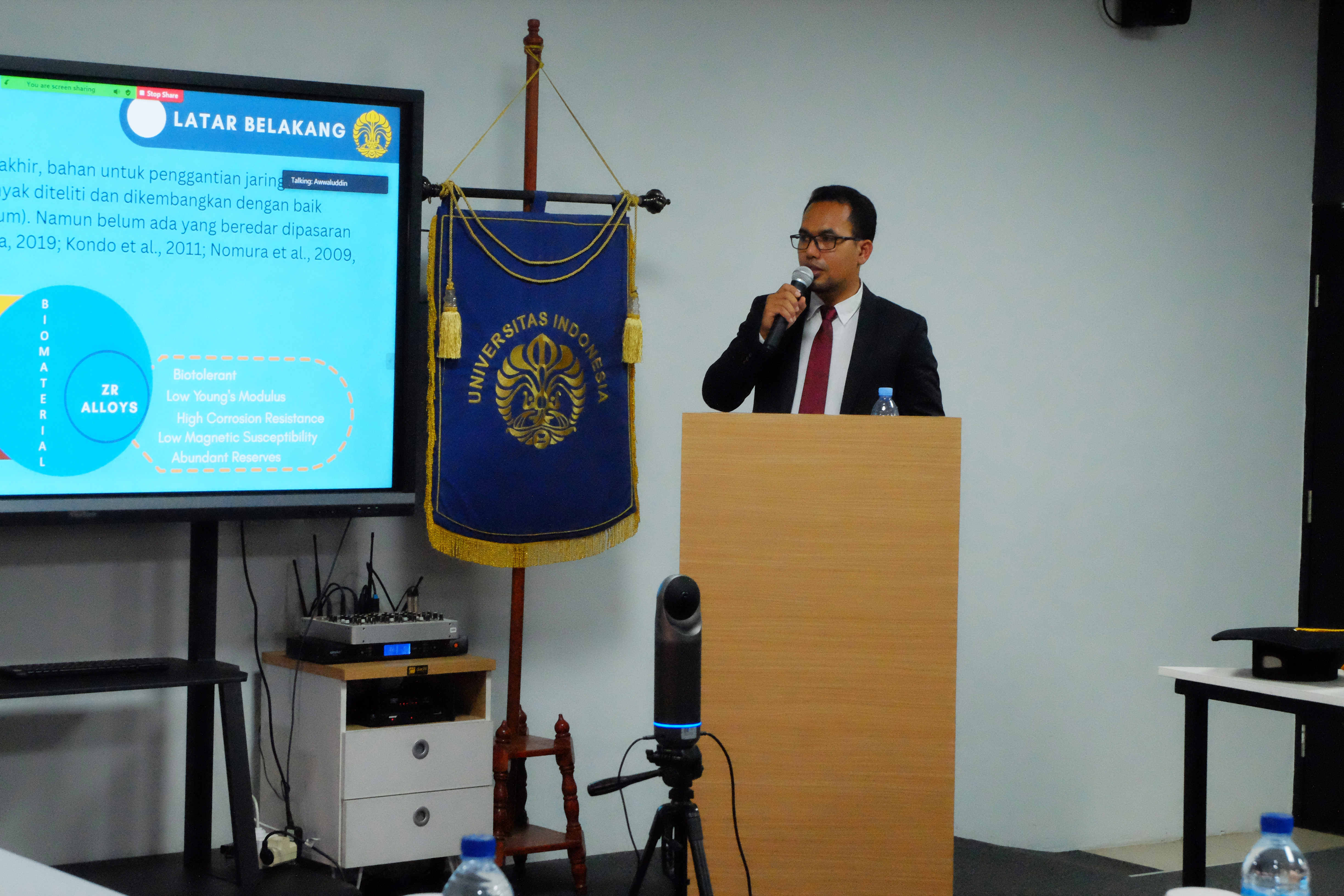The application of biomaterials as medical treatment aids has been widely used as a substitute for teeth, bones, stents, and other limbs. It was recorded that the demand for and use of biomaterials reached US$ 212.8 million in 2008, even the use of biomaterials as a substitute for groin bones is estimated to reach 272,000 pieces in 2030. In Indonesia 90% of this need is still imported from abroad, therefore it is necessary to develop metal-based biomaterials in the country.
In the last ten years, metal-based biomaterials for biomedical and biological hard tissue substitutes have been researched and developed. Metallic materials have good biomechanical properties and are suitable for process sterilization in the biomaterials industry because they have excellent mechanical and corrosion properties. Alloys that have been extensively researched and developed as metal-based biomaterials are alloys based on titanium, ferrous, cobalt, magnesium, and zirconium because these alloys are bio-inert.
This was stated by Muhammad Awwaluddin when presenting his dissertation at an open session for the promotion of the Doctoral program, Mechanical Engineering study program, Faculty of Engineering, Universitas Indonesia (FTUI) last month at the UI Depok Campus. The dissertation that describes the biomaterial guidelines needed for the development of bone implant bone plate is entitled “Development of Biotolerant zr Based Alloy Bone Plate Materials and Tests of Mechanical Properties of Static Loads and Biaxial Fatigue.”
“In this study, I used a zirconium-based biomaterial alloy. The development was carried out by carrying out non-mechanical characteristics including microstructure, phase, corrosion resistance, and the toxicity value of the alloy and mechanical properties including hardness, axial-biaxial tensile strength, compression strength, shear strength, and axial-biaxial fatigue. In addition, the smelting process uses a vacuum arc melting furnace which is fed with high purity argon gas and uses metal raw materials with a purity above 99%,” said Muhammad Awwaluddin in his presentation.
With the development of this zirconium biomaterial alloy that can produce characteristics with low toxicity, high corrosion resistance, and better mechanical properties the Zr-6Mo-4Ti-3Y alloy, so the alloy is suitable for use as a bone plate.
“From the research results of Dr. Muhammad Awwaluddin, it can be seen that the results of research on the development of zirconium-based biomaterials have better mechanical and non-mechanical characteristics and have better biocompatibility for use as bone plate biomaterials. So it is hoped that in the future this research can be carried out in more depth so that later it can be used as a reference in making bone plate biomaterials in Indonesia,” said the Dean of FTUI, Prof. Dr. Heri Hermansyah, ST., M.Eng., IPU regarding this research.
Muhammad Awwaluddin earned his doctorate with a GPA of 3.88 and a Cum Laude predicate. He is the 99th Doctor who graduated from the Mechanical Engineering Department and the 493rd Doctorate at FTUI. The Doctoral Promotion Session was chaired by the Chairman of the Session, Prof. Dr. Ir. Yanuar, M.Eng., M.Sc., with Promoter Prof. Dr. Ir. Tresna Priyana Soemardi, SE, MSi, IPU ASEAN-Eng., and Co-Promoter, Dr. Djoko Hadi Prayitno, MSME., The Examiner Team consisted of Prof. Dr. Ir. R. Danardono A. Sumarsono, DEA, PE., Prof. Ir. Jamasri, Ph.D., IPU., ASEAN Eng., Jos Istiyanto, ST. MT. PhD., Dr. Ir. Gatot Prayogo, M. Eng., Dr. Sugeng Supriadi, ST. Ms. Eng.
***
Bureau of Public Communications
Faculty of Engineering, Universitas Indonesia

